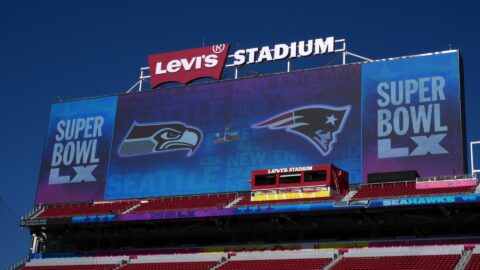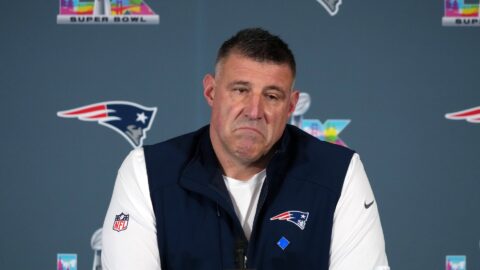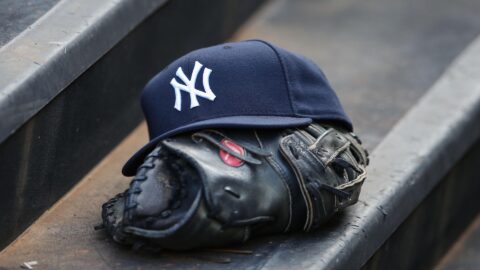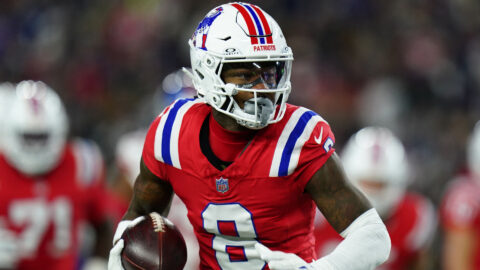BOSTON — We've seen a lot out of Paul Pierce over the course of his career to prove that he's a warrior. His speedy recovery from the horrific September 2000 stabbing incident, the memorable "Willis Reed moment" that defined his 2008 NBA finals, the constant perseverance in the face of nagging injuries this season. It's clear that what doesn't kill him will always make him stronger, and nothing's killed him yet.
You want battle-tested? I'll give you Paul Pierce.
The latest test came Sunday night, when Pierce went down with an injury midway through the third quarter of Boston's loss to the visiting San Antonio Spurs. With six minutes to go in the third and the Celtics trailing, the aggressive Pierce tried to drive the lane past two defenders — Richard Jefferson on one side of him, Manu Ginobili on the other. Pierce and Ginobili collided, and the Celtics' captain went down, clutching his shoulder.
The diagnosis on Pierce was a shoulder "stinger," or a momentary pinched nerve that shot pain throughout the captain's body from his shoulder. A scary moment for Pierce, for the Celtics and for their fans, no doubt.
"I don't know, I ducked my head or something," Pierce said after the game. "It's a collision, a collision. I mean, you guys watched the game and saw the replays, I hope."
Pierce didn't really want to talk about it. He just wanted to shake it off, get back on the court and play.
Which he did, about two minutes later. Shoulder injury? What shoulder injury?
"It's just a little sore," Pierce said. "It's a stinger, got some numbness down the right side of my arm, but hopefully it doesn't get any worse."
This was just the latest in a series of injury setbacks that have dogged Pierce in this, his 12th season in the NBA. He battled a mid-foot sprain earlier this winter. At the same time, he was dealing with a sprained thumb. And last week, he revealed that he underwent a procedure last February, the Monday after the All-Star Game, to have fluid drained from his hobbled right knee.
It's not the first time he's had the knee draining, either. He went in for a similar procedure earlier this season, in fact, back in December. But this was the first time he's been stubborn enough to try playing through it.
The day after the procedure, he took the floor against the Kings and was slow and weak all night. He settled for jump shots all over the floor, finished 5-of-15 with 17 points. The game after that, only 11. Then nine. Then five. Then coach Doc Rivers decided he had seen enough.
It wasn't until Feb. 23 — eight days after the procedure — that Pierce sat for the first time. He missed three games, made his return in Detroit on March 2, and it's been smooth sailing from there. A tiny bit of rest did him a whole lot of good.
Now, the captain looks better than ever. You can see it on the floor — he's looked more confident, more assertive. He's faster, stronger and more explosive than he's been at any point this season.
You can see it in the numbers, too. He strung together point totals of 29, 25 and 29 against the Knicks, Rockets and Mavs a week ago, proving that he's once again ready to carry the Celtics offensively down the stretch. He's clearly not the same player he was back in February. He's a lot better. Maybe all he needed was a week to collect himself.
All of the NBA's greatest competitors hate missing games. Look at Michael Jordan or LeBron James. Kobe Bryant is famously stubborn for refusing to sit. Pierce might not be the same player that those guys are, but he's got that same competitive spirit. And while that spirit is ultimately what wins you championships, it can also hurt you if you can't rein it in at the right times.
Pierce was able to swallow his pride in late February. He went to the doctor, got some work done and eventually sat out a few games in the middle of a heated playoff race. It took guts to do it, but it was the right call. The Celtics now have their leader back, and come playoff time, they'll be happy they do.
Whether it's a shoulder stinger that keeps him out two minutes or a nagging knee injury that keeps him down for months, the moral's the same: Paul Pierce is able to fight through it. That's the kind of guy you want leading your team.



